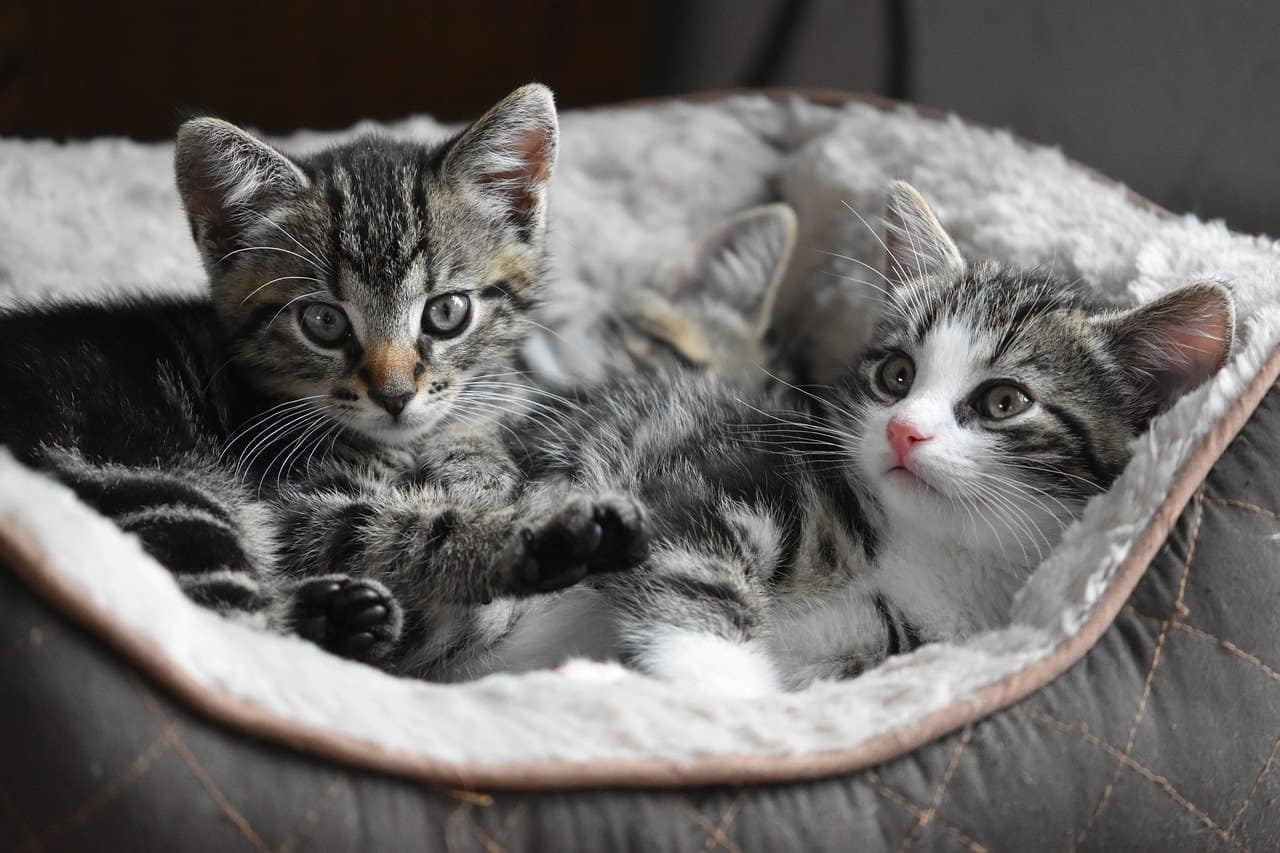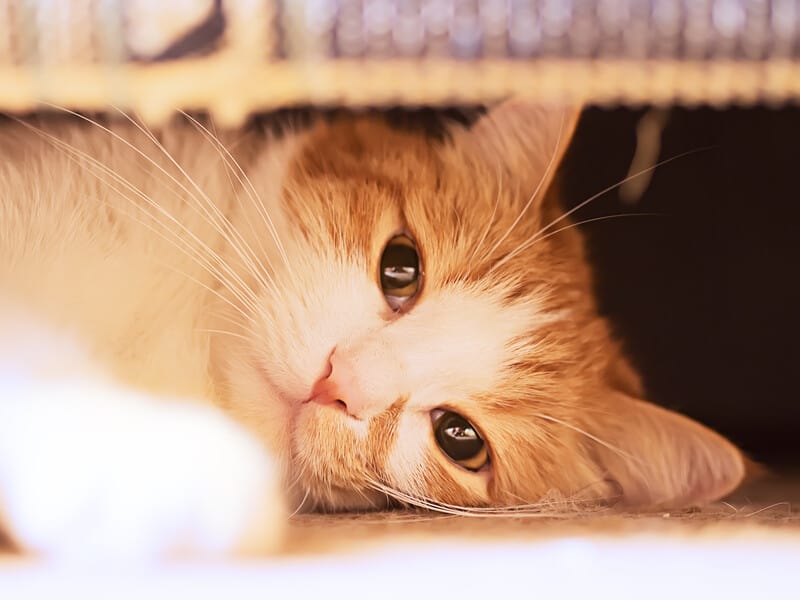Whether you’re planning to get a new cat or getting to know your cat better, many of a cat’s character traits and physical appearances are linked to its gender.
Here we’ll highlight some of the most notable differences between male and female cats. Although both genders make wonderful pets, some of these differences may influence your preference for a specific gender.
In this article
Male versus Female Cats
Male and female cats often display different character traits. Generally, male cats are more playful and cuddly, whereas female cats are more independent. Males and females also differ in physical appearance and are each prone to specific medical issues related to their gender.
Differences in Character between male and female cats
Cats
Physical differences between male and female cats
Gender-related health issues in cats
Typical male and female behavior have much to do with a cat’s sex drive. Both male and female cats want to escape to find a mate.
Males will mark their territory through urine spraying, while females can bring home unwanted pregnancies. However, most of these gender-related conducts get reduced if you neuter/spay your cat.
Besides their gender, numerous factors can determine a cat’s personality traits, like the breed or upbringing. While certain behaviors are more typical for one sex, there is no guarantee.
Every cat is unique, so while most females tend to be more independent, this doesn’t mean all female cats will be like that.
How to know if my cat is male or female?
The ability to distinguish between male and female cats can be difficult at first, especially with kittens. Once they’ve matured and their genitals have grown, it becomes easier. But how can you determine the sex of your kitten?
The American Society for the Prevention of Cruelty to Animals (ASPCA) explains how to differentiate a male cat from a female cat.
To determine your kitten’s gender, look at its genitals and focus on the shape and distance from the anus. In male cats, the penis looks more like a dot and is further away from the anus. The testicles are mostly only visible in more mature males. In female cats, the vulva looks like a vertical slit just under the anus.
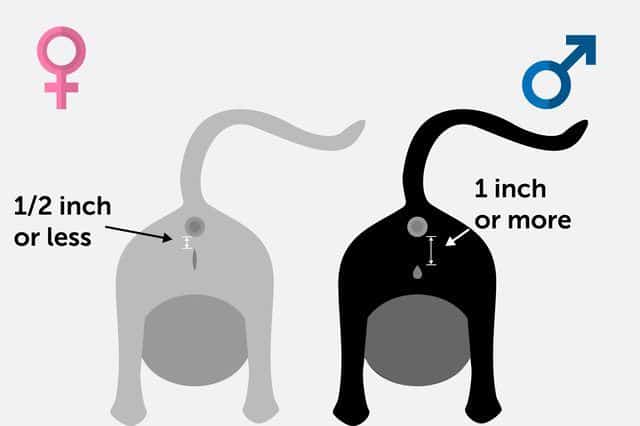
What are the physical and biological differences between male and female cats?
Apart from the most obvious physical differences between a boy cat and a girl cat, namely their genitalia, there are other physical cues to tell them apart.
Weight and size
Cats, on average, are about 9 to 10 inches (23 to 25 cm) tall and weigh around 8 to 15 lbs (3 to 6 kg.) But these measurements can vary depending on other factors, such as cat breed, gender, and diet.
To illustrate, a female Siamese cat weighs around 8 to 12 pounds. But a male Siamese weighs about 11 to 15 pounds.
Males tend to be a little larger than females, but not enough to be a substantial difference. Intact males tend to have more prominent cheeks, making their heads look bigger and fluffier.
The coat color
Coat color can sometimes be a good indicator of the cat’s gender.
At this point, almost everyone knows that calico cats with their distinct pattern are all females. But also, most orange cats happen to be males. Why does this happen? Thankfully, there’s some science behind this.
To put it simply, one of the many genes that control coat color is on the X chromosome. This gene in the X chromosome has two versions (or “alleles”), one that is orange and one that is black.
Like all mammals, male cats have XY chromosomes, and female cats have XX chromosomes.
Because in the X chromosome, either the orange or the black color is dominant and male cats have only one X chromosome, they can exhibit either color. Female cats have two X chromosomes and are likelier to show a mix of colors like in calico or tortoiseshell cats.
Female cats can be all black or all orange. But the chances are near-zero since they need to have the same gene on both X chromosomes. At the same time, male cats can’t exhibit more than two colors in their coat. If they do, it’s because they have two X chromosomes and are probably sterile.

Lifespan
Solid research suggests that female cats live longer than male cats. Males live an average of 13 years, while females live an average of 15 years. Also, indoor cats will live longer than outdoor cats.
Male versus female cats: Health issues
If you’re considering getting a male or a female cat, you need to know about any health implications. Here are some of the most typical health concerns of boy cats versus girl cats.
Male cats’ health issues
Male cats tend to suffer more from urinary obstructions. These obstructions occur because male cats have a smaller urethra than female cats, which results in extra complications. These are often exacerbated by a diet rich in certain minerals such as magnesium, phosphorus, and calcium.
Intact male cats and some neutered males are prone to suffer feline tail gland hyperplasia. This condition affects the tail glands and can cause an infection.
These can, over time, cause your cat’s urinary tract to clog up and prevent it from relieving itself. If you suspect this, please take your boy to the vet because this condition is life-threatening.
Males can suffer from testicular and prostate cancer. Neutering your cat can’t prevent most of their gender-related conditions, but it can somewhat reduce the risk.
Female cats’ health issues
Female cats can experience uterine cysts, tumors, and mammary cancer. Female cats can also experience a peculiar condition called false pregnancy. This hormonal imbalance makes the body produce pregnancy hormones when there is no pregnancy.
The uterine lining tissue can experience inflammation and develop into a condition called pyometra.
Females have an advantage over males. Most female cats’ health issues can stop if you “fix” your kitty because when spaying your girl cat, her reproductive organs, such as her uterus, are removed.
Do male and female cats exhibit different behaviors?
While it’s true that the sex of your furry friend can play a significant role in determining your cat’s behaviors, it’s only one part of the equation.
Not all males and females will exhibit the same behaviors. They are prone to certain attitudes, but each cat has a unique personality influenced by more factors than gender alone.
That said, studies and anecdotal evidence suggest some noticeable behavior differences between male and female cats. Let’s explore some of the critical personality differences.
Are male or female cats more friendly?
According to research, male cats tend to be friendlier than female cats. Of course, this loving behavior occurs a lot more when you neuter your cat. Male cats usually get along well with other cats in the household.
Many cat owners report that their male cats love to cuddle and play more than their female cats.
It’s not uncommon that a typical male will crave a lot of attention and playtime from you. So if you don’t mind spending a few moments every day with your special cat friend, go for a male.
However, un-spayed females can become surprisingly affectionate when they get into heat. Still, spaying your cat is always better to prevent unwanted kittens.
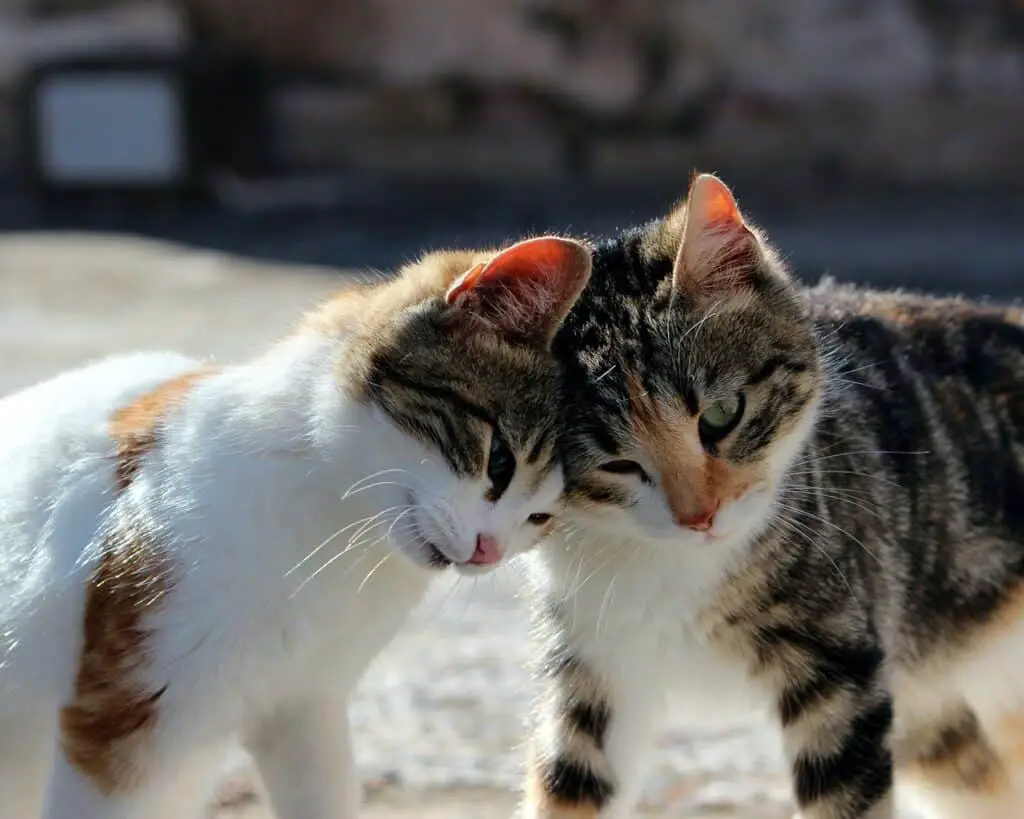
Are male or female cats more independent?
Female cats are more independent than males. Female cats would rather spend the day sleeping in their favorite spot than playing. For this reason, female cats appear more aloof than males.
Female cats are incredibly loyal and often redirect their maternal instincts to their favorite human. Owners report that their female cat stays close to them when they are sick. They show lots of love, but they just don’t like hugs.
Still, if you prefer a more independent cat, maybe a female is what you need.
Are female cats better mousers?
People believe that female cats hunt better than male cats. The theory goes that females are better hunters because they have to feed their kittens.
So if you’re looking to get rid of mice, a female cat will help you out.
Although there might be some truth in this, this is purely based on anecdotal evidence, and when it comes to hunting skills, we expect males to be just as well equipped for the hunt as female cats.
Are male cats more aggressive than females?
An unneutered male can be more aggressive towards strangers. This is because male cats are more territorial than females, which can cause them to get into street fights with other cats. This can largely be avoided by neutering your cat.
On the other hand, female cats can also be aggressive. This behavior is often depending on the breed.
One research at the University of California Davis Veterinary Medical Teaching Hospital focused on finding a correlation between breed or color and aggressive behavior in cats.
Over 1,200 cat owners were asked to describe their cat’s personalities and then add a physical description. The study found that cats with calico and tortoiseshell coat patterns tend to hiss more, bite more, and scratch more.
And since calico and tortoiseshell coat patterns are almost always from a female, it could be something to consider when choosing your feline friend’s gender.
Are male cats more territorial than female cats?
There is evidence that suggests that male cats are more territorial than females. Intact males are more aggressive and will get into fights more often.
Un-neutered males will also spray more. That means that they’re more likely to pee your favorite pair of tennis shoes to show everyone that you are their human.
However, females can also spray; they just don’t do it with the same frequency as males. Females can also become territorial with their favorite places. In most households, a female cat is usually in charge of the other cats.
Do male cats roam around more than females?
A wild misconception says male cats tend to escape more often to find a mate, while females are loyal to their household.
Any un-fixed cat can escape and start looking for a mate. Cats do this because their sex drive is telling them to do so. It has nothing to do with gender.
Can neutering/spaying affect my cat’s personality?
People believe that neutering or spaying their cats will change their personalities. But that’s a common misconception.
According to the British Columbia Society for the Prevention of Cruelty to Animals (BCSPCA): neutralizing your cat won’t change its personality. People confuse the terms personality and behavior. Neutering your pet will help reduce negative behaviors.
Neutering or spaying your cat will not affect your cat’s personality but will impact its behavior. Generally speaking, neutering or spaying your cat will reduce unwanted behaviors.
Male cats can become less aggressive and territorial and less likely to escape to find a mate. Female cats will no longer go into heat, which means no night yowling.
Neutering your cat will typically reduce some behavioral differences between male and female cats. Males are known for marking their scent around the house, and females for howling when they go into heat. By neutering or spaying your cat, you reduce these behavioral differences.
Intact cats can display some of these behaviors:
- Females howl when they go into heat.
- Females become more affectionate when they go into heat.
- Males cry when they feel the scent of a female in heat.
- Some males can be more aggressive.
- Males can mark territory with their urine.
- Males and females tend to escape to find a mate.
Suggested reading: Do Cats Get More Affectionate With Age?
Can male cats and female cats live together?
Yes, male and female cats can live together in the same household. The male-female combination works better than the male-male; and the female-female combination.
Male cats are more likely to groom other cats, regardless of sex. However, females typically don’t groom other females; they prefer to groom males.
Adopting littermates is always better because they’re less likely to have territorial fights.
Should I get a male or a female cat?
At the end of the day, whether you get a male or a female cat is a decision you must make yourself.
You should get a male cat if you want a cuddly cat who loves to play. But if you don’t have time to care for a male, it’s better to get yourself a female cat. Conversely, females are better at hunting mice in your house.
While males spray more often and females cry when they go into heat, you can stop all of these undesired behaviors by fixing your cat.
But gender isn’t the only factor to consider. It would be best if you also considered the breed.
In conclusion, every cat has unique traits and personalities. If you plan to get a cat, observing their behaviors up close is a great idea. Take your time to know your future friend. Female cats can be loving and male cats can be independent.
Love cats?
Then you will love our other content as well. Have a look at these other posts on our website.
-

10 Ways to Make Your Cat Live Longer
The oldest cat to ever live passed away at the old age of 38. On average, household cats live between […]
-

12 Reasons Why Siamese Cats Cry at Night
Siamese cats are a popular breed of cats that many people choose to have as pets. Perhaps you have heard […]
-
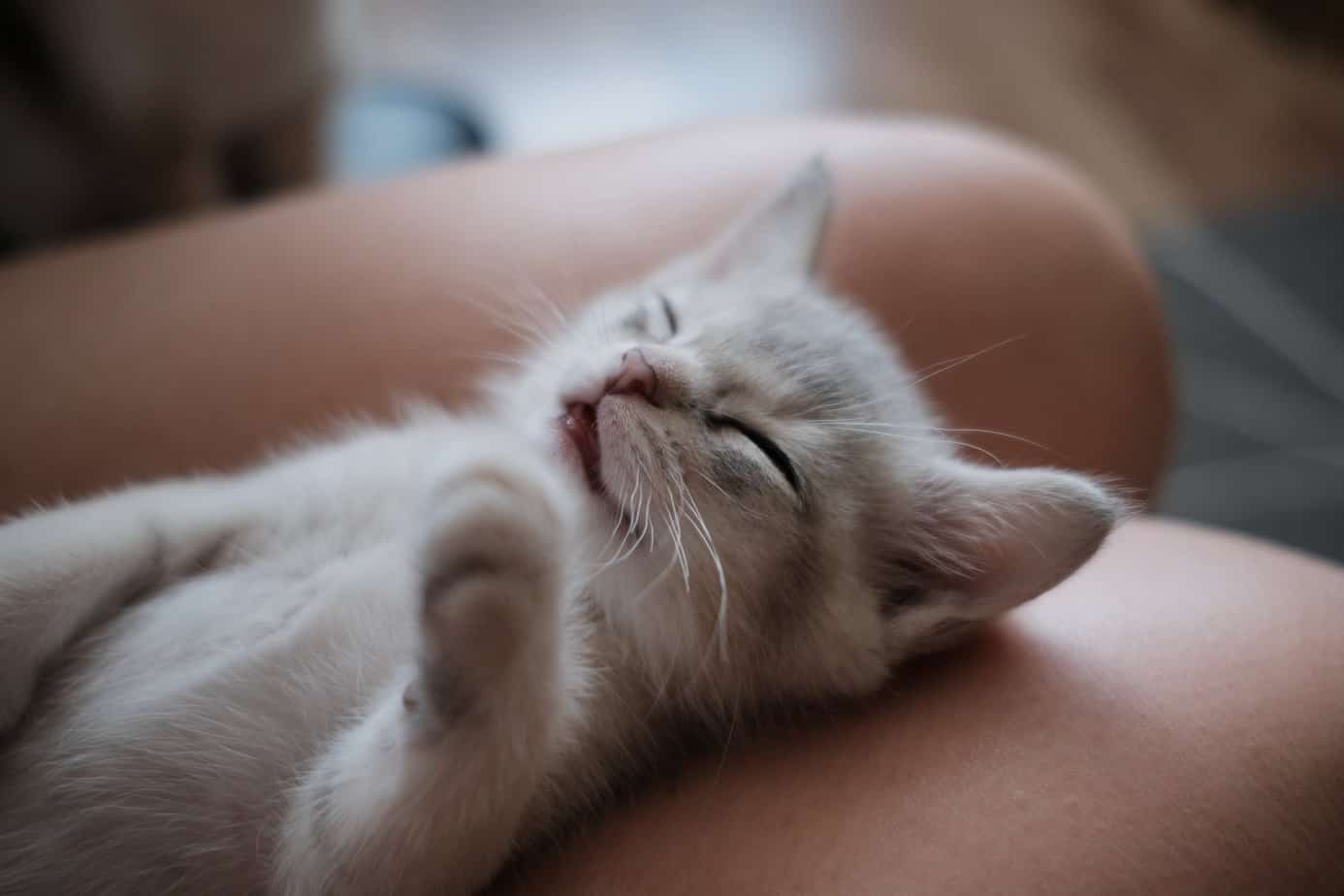
15 Incredible Ways That Cats Show Affection For Humans
Wondering how cats show their affection for humans? We have listed several incredible ways that cats are trying to show their love for us.

